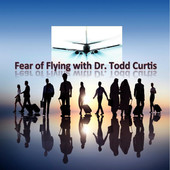 On Saturday November 26th, a 47-year old man was arrested at Boston's Logan airport after he was allegedly seen viewing child pornography on a flight from Salt Lake City to Boston. The accused passenger, University of Utah chemistry professor Grant Smith, was sitting in first class when another passenger saw the pornographic images on a laptop and alerted the crew.
On Saturday November 26th, a 47-year old man was arrested at Boston's Logan airport after he was allegedly seen viewing child pornography on a flight from Salt Lake City to Boston. The accused passenger, University of Utah chemistry professor Grant Smith, was sitting in first class when another passenger saw the pornographic images on a laptop and alerted the crew. The accused passenger was charged with possession of child pornography and taken into custody and arrested. According to police, other passengers took a cellphone photo of the accused watching a suspected child porn video on his laptop.
According to prosecutors, a passenger seated behind Smith’s first class seat on the Delta flight on Saturday took a picture of what Smith was doing and sent a text message to his son with the picture, asking his son to contact Massachusetts police.
The passenger also alerted a flight attendant who confronted Smith and ordered him to shut off his computer, which happened to be the property of the University of Utah. After being contacted by the flight attendant, Smith allegedly tried to erase images from his computer. The images were mostly of girls between six and ten years old, naked or nearly naked, engaging in simulated sex acts.
Smith's employer, the University of Utah, has placed him on administrative leave and says it will permanently dismiss him if the child porn allegations are proven to be true.
In the recently published AirSafe.com Baggage and Security Guide, the issue of what passengers can or should be able to do with their laptop or other personal electronic device was discussed in some detail. There are two issues from that Guide that this recent incident in Boston brings up, the limitations of free speech and common sense limitations on the use of personal electronic devices in an aircraft cabin.
The First Amendment and personal electronic devices
In the US, the First Amendment of the Constitution forms the basis of laws and traditions when it comes to freedom of speech, which includes the right of adults to possess or view most, but not all, forms of sexually oriented material. One of the few limitations on speech is in the area of obscene material, specifically material that has been legally determined to be sexually explicit, offensive to conventional standards of decency, and lacking in serious literary, scientific, artistic, or political value.
While it may be difficult for the average person to identify obscene material, one type that is very easy to spot is child pornography, which is any kind of visual depiction of a person under the age of 18 engaged in sexually explicit conduct. The conduct does not have to involve either sexual acts or nudity, though in this alleged incident, the images contained both nudity and simulated sexual activity. This kind of material is illegal for anyone in the United States to view, possess, or publish.
What to do if you see child porn in flight
If you are on an airplane and you see what appears to be images or videos depicting child pornography, bring it to the attention of a cabin crew member immediately. This appears to be exactly what passengers did during the recent incident on the Delta flight to Boston. If this is not possible, and you are arriving at a US airport, contact a law enforcement representative after you land. If you are landing at a non-US airport, use your best judgment as to whether you should report what you saw.
Passenger behavior and electronic devices
Airline policies, and especially the cabin crew on your flight, usually are quite clear about when portable electronic devices can and cannot be used on an aircraft. What is not quite as clear is what is an acceptable use of these devices. Federal laws may affect when you can use a personal electronic device, but airline policies and social conventions may limit how you can use your device. Avoiding the potential embarrassment of having a flight attendant asking you to turn off your device, or avoiding the wrath of your fellow passengers, is easy if you follow these common sense suggestions for appropriate behavior involving portable electronic devices:
- Avoid making excessive noise - When playing music or videos, use headphones or earphones. For other devices that don't have a headphone jack, turn off the audio. If that is not possible, don't use the device. If you are on the phone, there's no need to speak loudly enough to be heard across the cabin. If you want to use some kind of voice recording device during the flight is within the rules, exercise some judgment and don't do it loudly or for long periods.
- Avoid displaying inappropriate images - These kinds of images generally include depictions of sexual activity, sexually suggestive nudity, material depicting extreme acts of violence, or other images that could be upsetting to other passengers. In the US, with very few exceptions, violent, disturbing, or sexually explicit material is legal to own. The problems come when one person's freedom to watch almost anything imaginable runs counter to an airline’s desire to provide an acceptable environment for all of its passengers. The inside of an airliner is not a private space where passengers are free to watch what they please. Most flight attendants would likely take a common sense approach and won't do anything about what people are viewing unless it is disturbing other passengers.
- Don't photograph people without their permission - Inside an aircraft, there is a certain expectation of privacy. While it may be tempting to shoot a funny picture or video of that snoring passenger across the aisle, don't do it without asking first.
- Don’t photograph unaccompanied children - It is customary to get a parent or guardian's permission before photographing a child, but that is not possible with a child traveling alone. Furthermore, to other passengers and to the crew, a person taking pictures or shooting a video of an unaccompanied child may look either creepy or suspicious.
When flying domestically in the US, TSA may inspect computers and other electronic devices for explosives and other hazardous or banned items, but they will not confiscate them, scan them, or even turn them on as part of their normal duties. Should anyone at a TSA checkpoint attempt to confiscate your electronic device or gain your passwords or other information, please to see a supervisor or screening manager immediately.
When entering or leaving the US, Customs and Border Enforcement officers are responsible for ensuring compliance with customs, immigration, and other federal laws, and may examine or even confiscate computers, digital storage devices, and other electronic devices. This can happen even if they don't have any evidence that you are breaking the law.
Photo: ShaneRobinson










If this had been on a JetBlue flight, the passenger who photographed the other passenger viewing Child porn might be (illegally) have been ordered to delete the photo or arrested.
ReplyDeleteA flight attendant on a Jetblue flight illegally ordered a woman to delete a video she shot on a plane and when she refused, she was arrested.
Also, how is an aircraft cabin more private than the airport terminal?
So what they are saying is that if you want to take a picture of the snoring man sitting next to you, you are supposed to wake him and say something like "hey I think you look funny when you sleep can you go back to sleep so I can take a funny picture of you and upload it to the internet. Thank you.
ReplyDelete